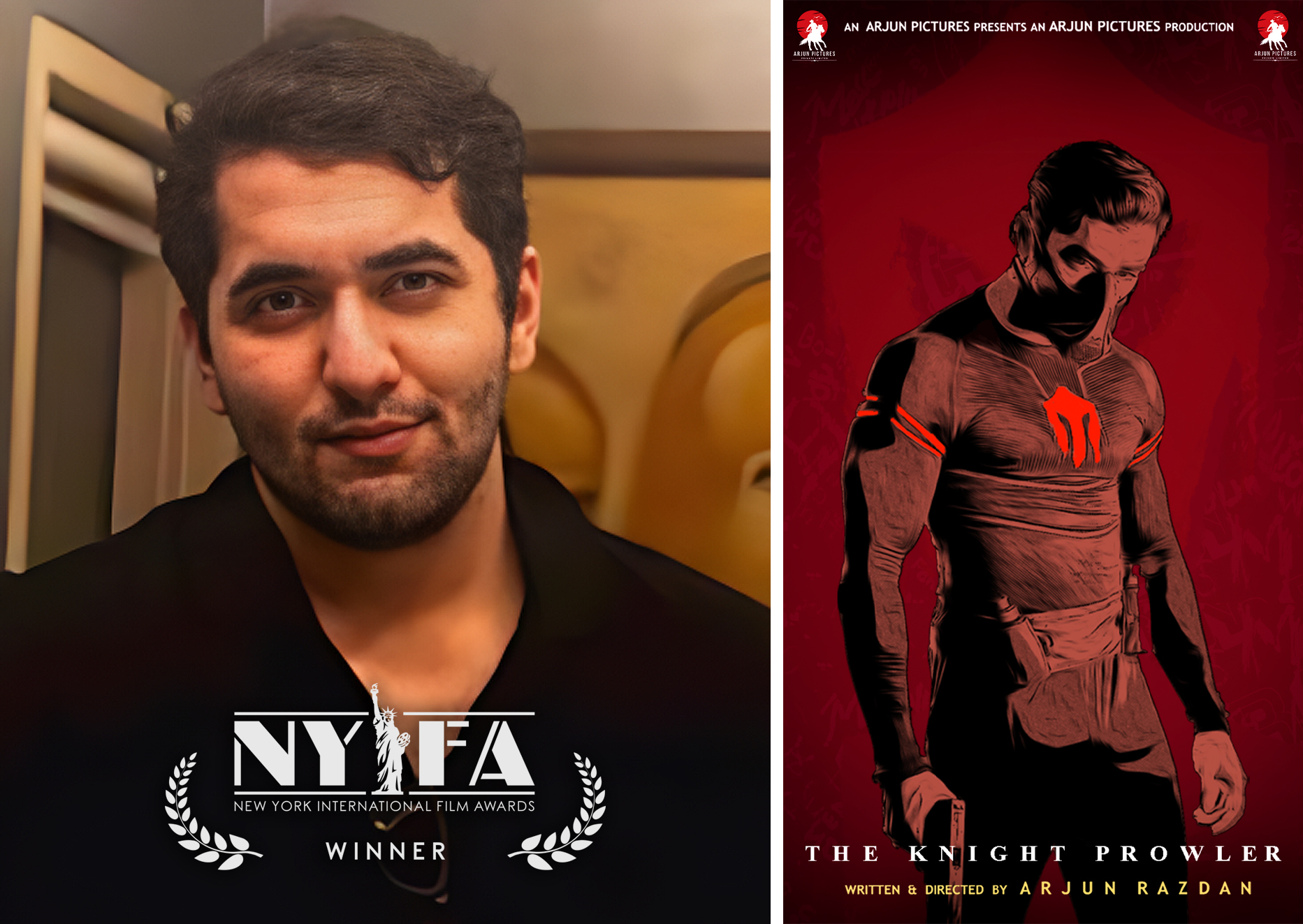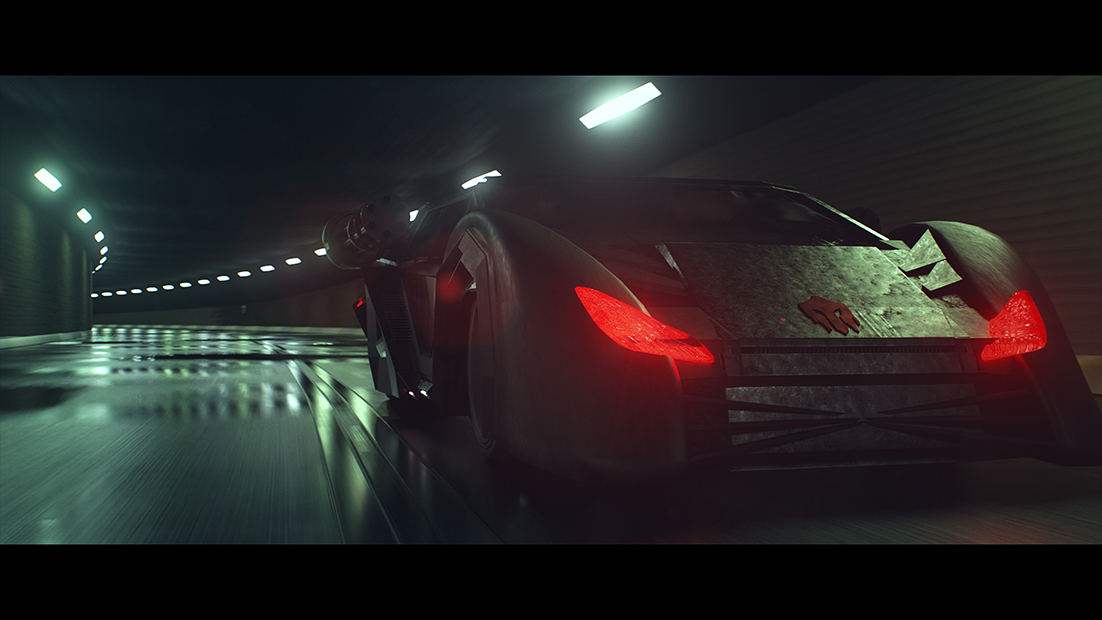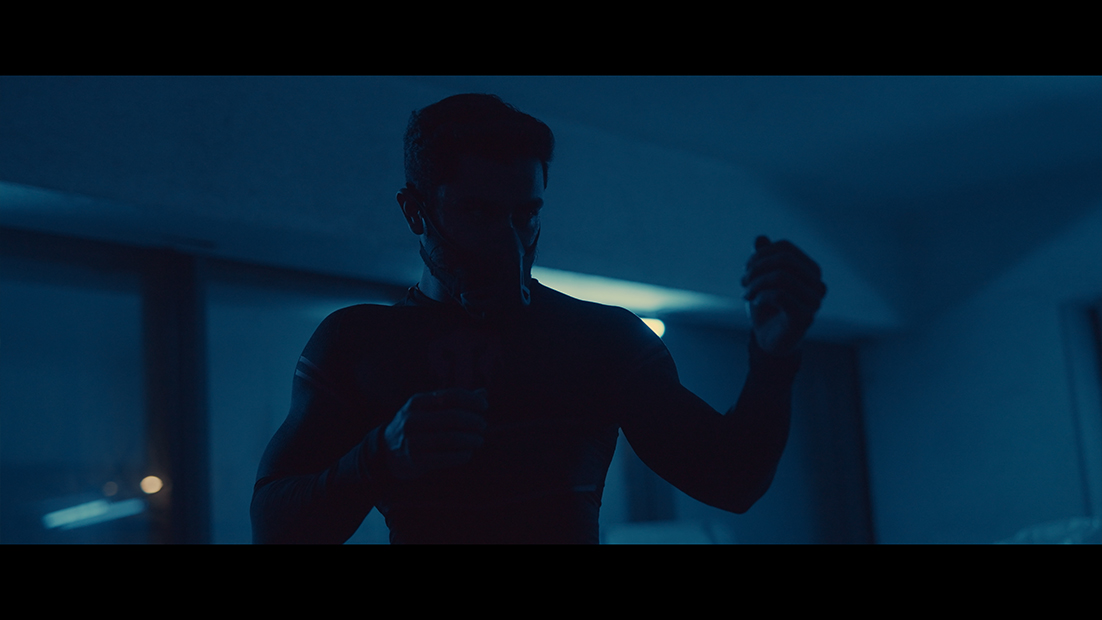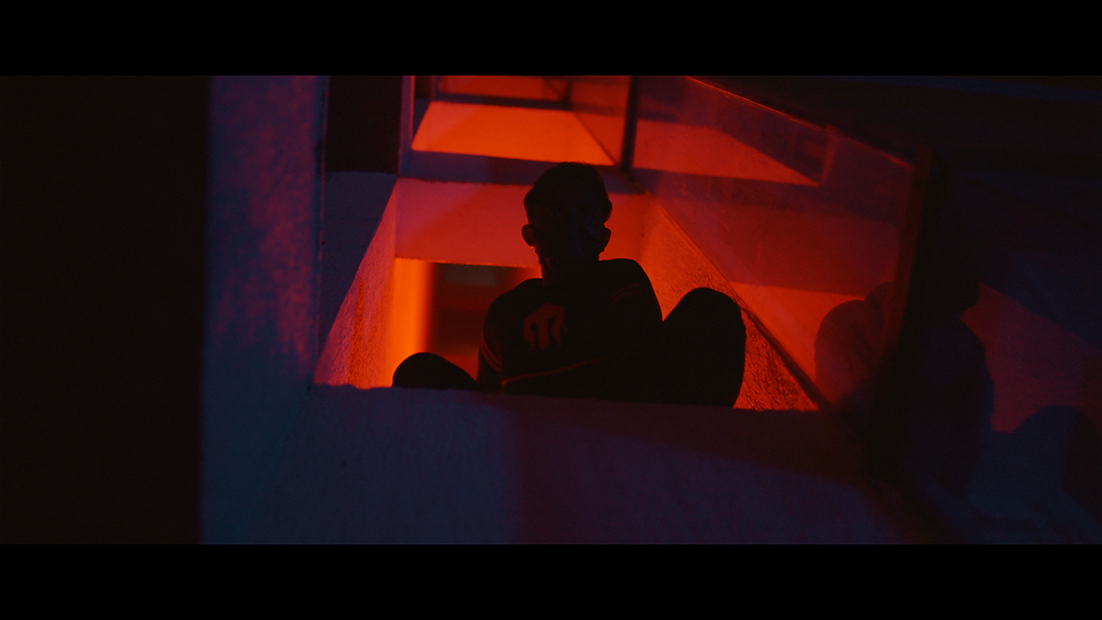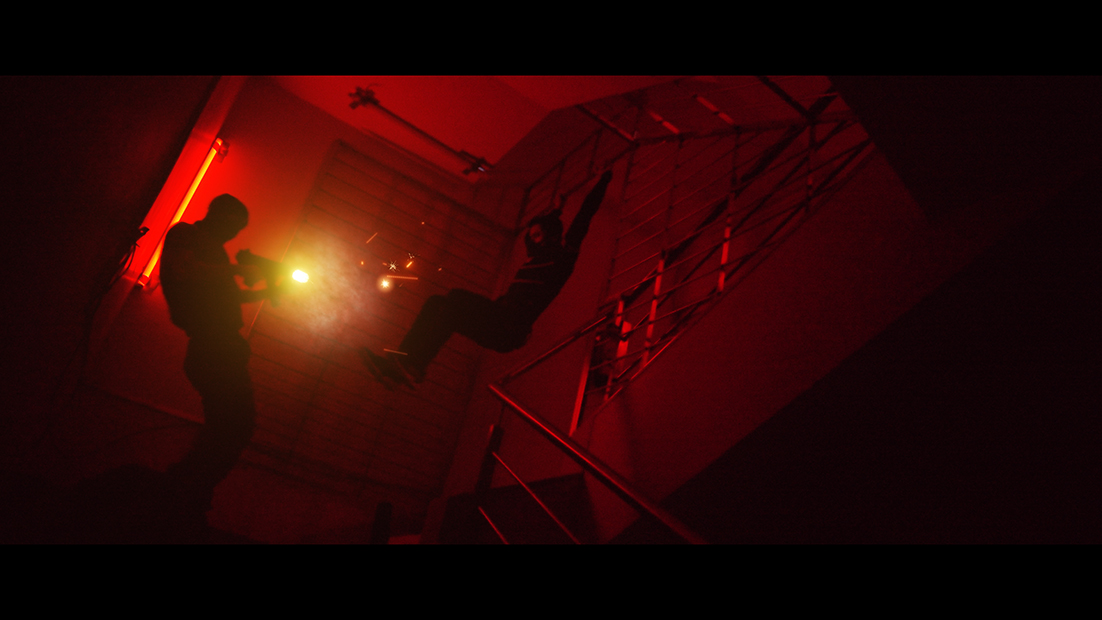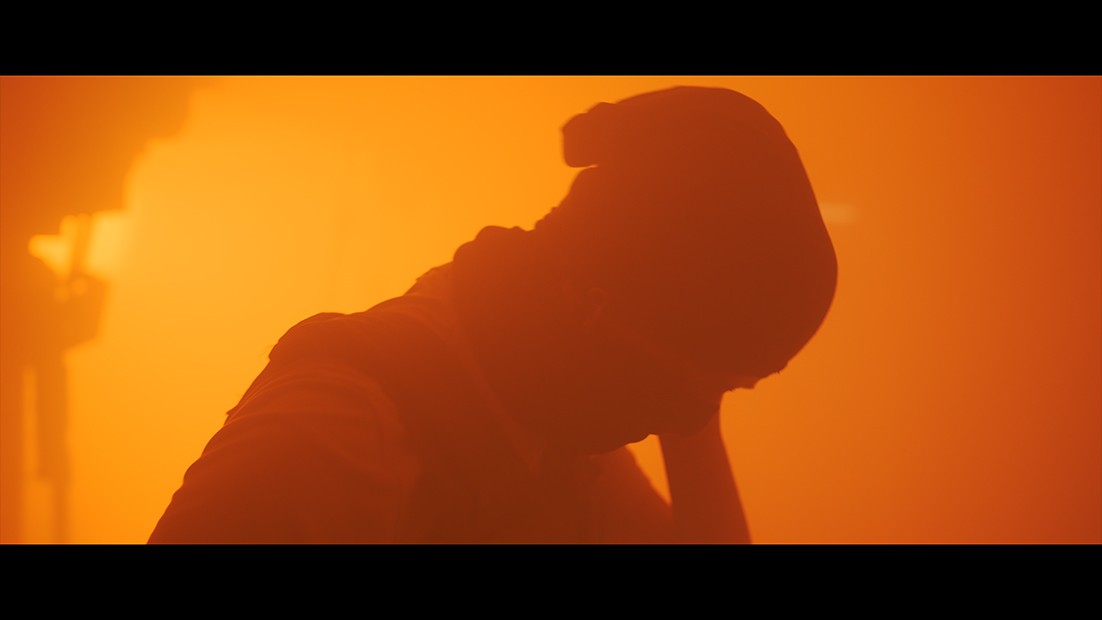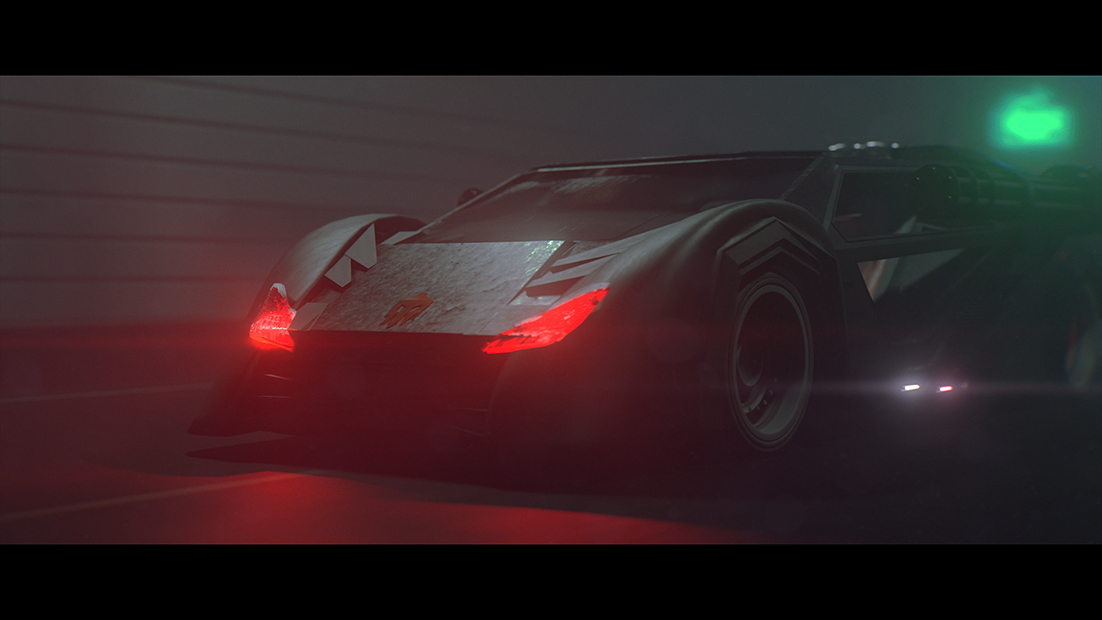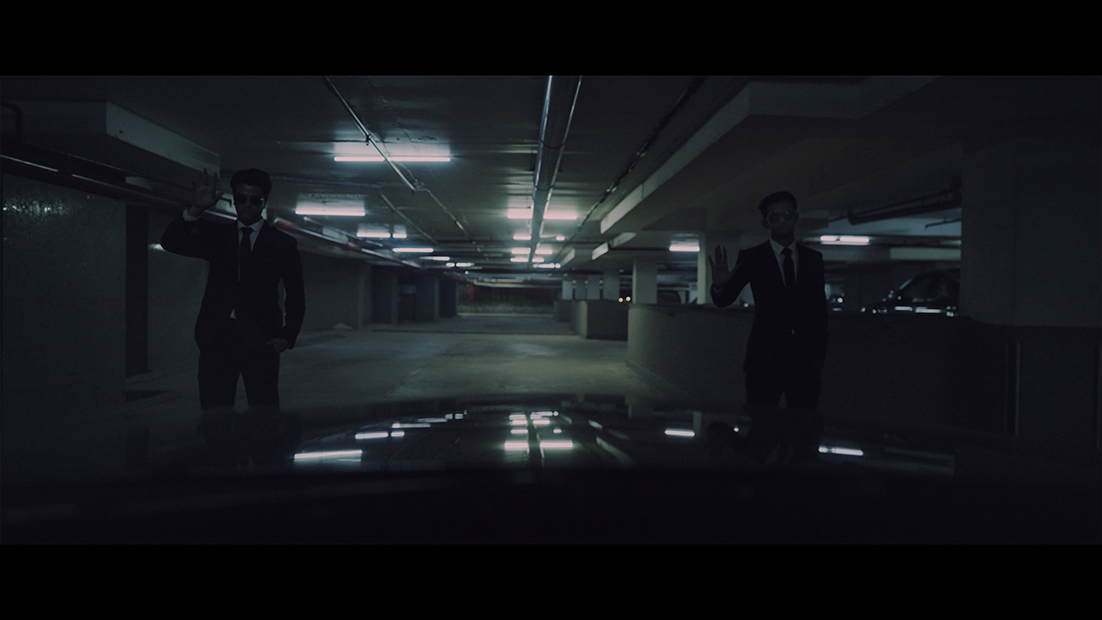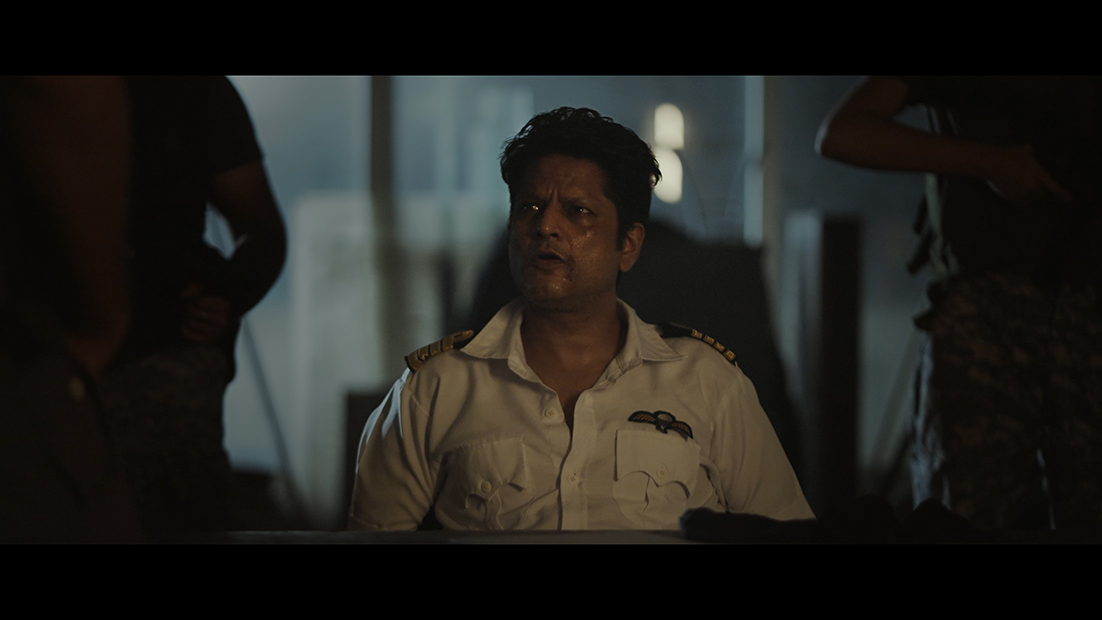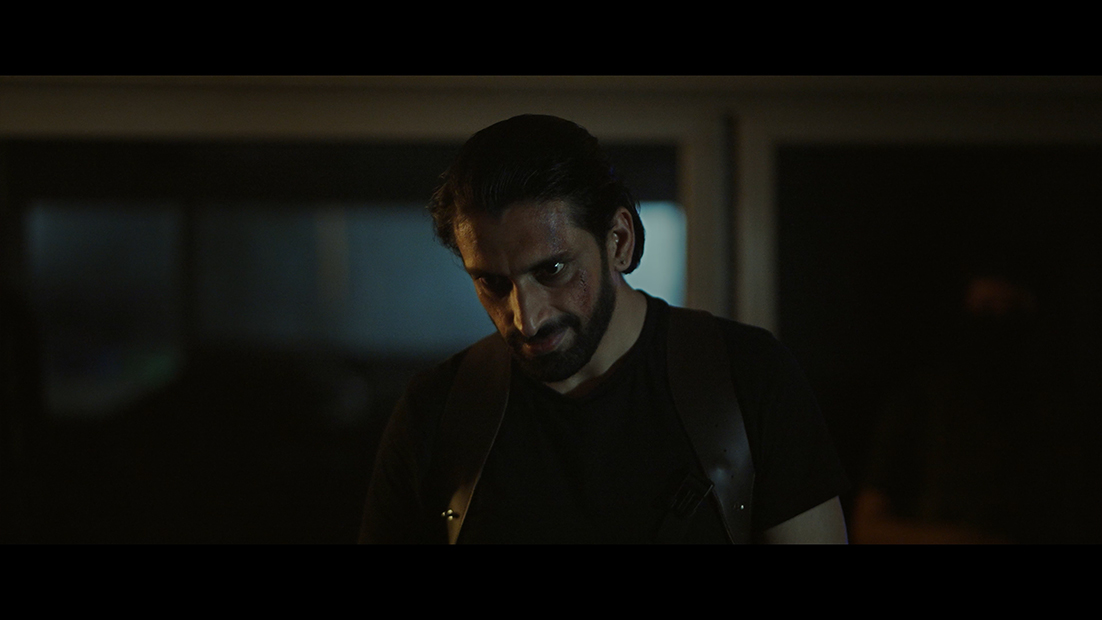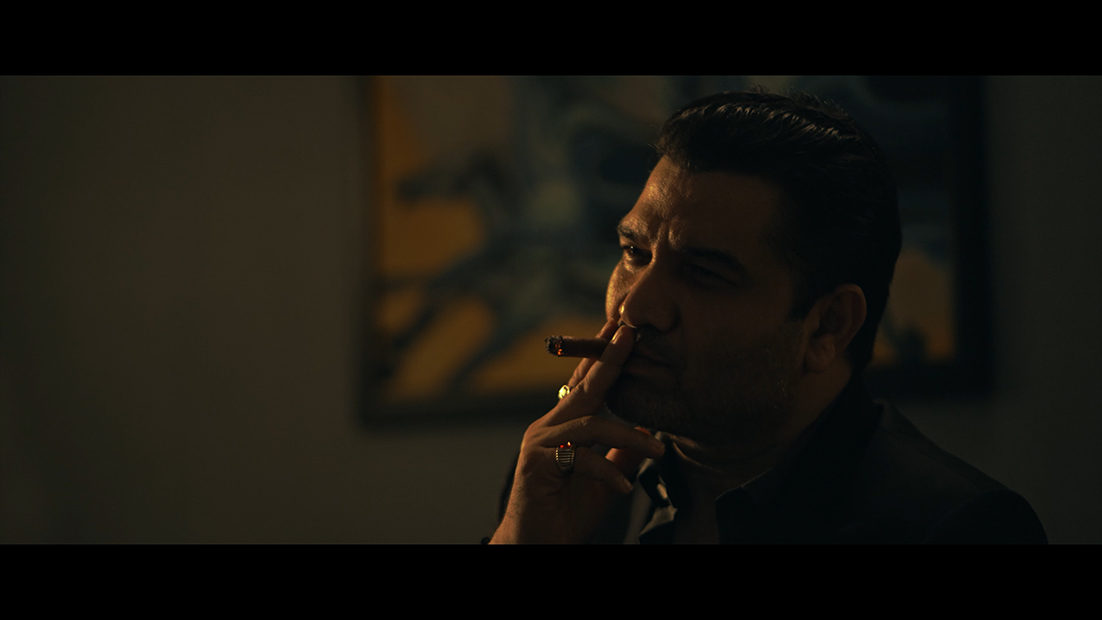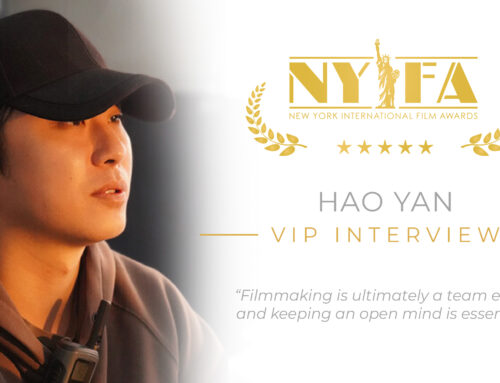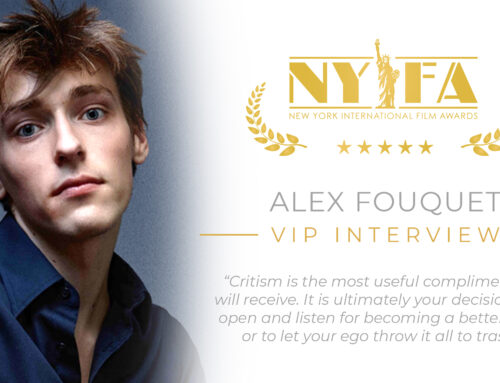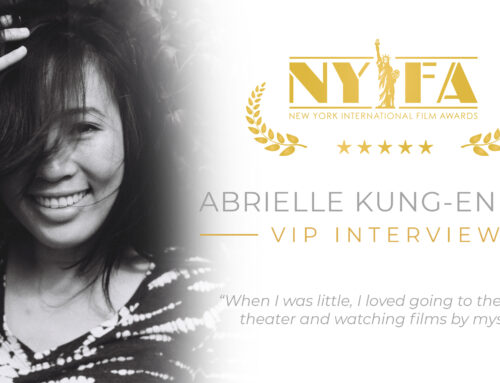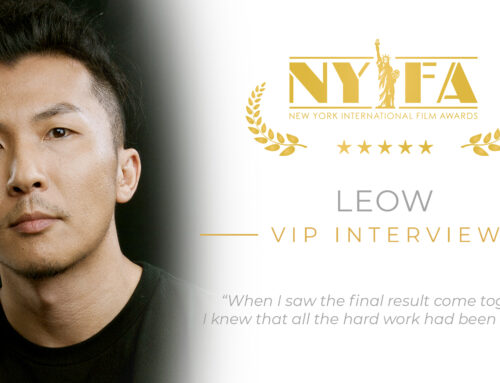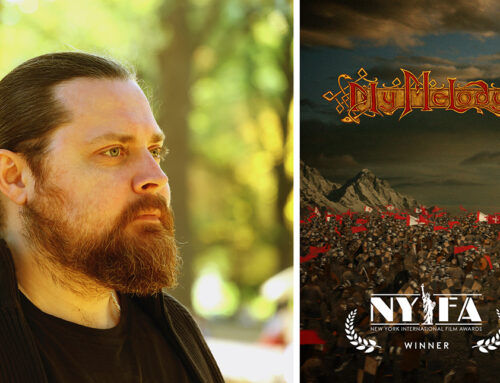VIP Interview with Arjun Pankaj Razdan, writer, producer, and director of the Award Winning Short Film ‘The Knight Prowler’
Arjun Pankaj Razdan is the director, writer, and producer of the short film The Knight Prowler – a dynamic blend of thriller, action, fantasy, and sci-fi. In this interview, we talk about the production team, the inspirations behind the script, and how, as the Beatles once sang: you get by with a little help from your friends.
Hi Arjun! Congratulations on your many awards at NYIFA! When did you decide to become a filmmaker?
From my early days in middle school, I harbored a deep passion for films and the visionary filmmakers behind them. Growing up, I had the privilege of being immersed in global cinema, thanks to my parents, who introduced me to the works of some of the world’s most distinguished directors. This early exposure sparked a profound fascination with the art of cinematic storytelling.
In college, I enrolled in a film course that enriched my understanding of the intricate processes involved in producing, directing, and screenwriting. I explored the complexities of narrative structure, visual composition, character development, and the collaborative dynamics essential to working with actors and crew in realizing a vision. It was during this time that I realized filmmaking wasn’t just a casual interest—it was a craft I was naturally attuned to, a pursuit where passion and aptitude aligned. The moment when I knew I had to become a filmmaker…
When I began making my own films, particularly The Knight Prowler, I truly discovered the thrill of being on set: collaborating with actors, orchestrating the creative chaos, embracing risks, and pushing the boundaries of experimentation. These experiences solidified my determination to become a filmmaker. It wasn’t merely something I enjoyed—it was a calling deeply embedded within me, one I am fully committed to pursuing with unwavering dedication.
You are the director, writer, and producer of The Knight Prowler. How did you manage covering these different roles on set, and how was the overall experience for you?
Directing, writing, and producing The Knight Prowler was an exhilarating and intense journey. What began as a simple college project quickly evolved into something far more ambitious than we could have anticipated. With a tight deadline looming, I was determined to create something bold, captivating, and distinct from a production standpoint.
The script was drafted in just a few days, pre-production was condensed into a whirlwind nine or ten days, and we shot the entire film over the course of three to four intense days. Post-production commenced immediately thereafter. While I wouldn’t recommend such a compressed timeline—strong pre-production is the cornerstone of any successful film—our talented and dedicated team was the backbone that made it all possible.
The process felt like an adrenaline-fueled race, much like the film’s narrative itself. Every obstacle required swift, creative problem-solving, and that sense of urgency ultimately infused the final product with an unexpected energy. Juggling the logistical demands of producing with the creative intricacies of directing and writing was overwhelming at times, yet incredibly rewarding. Every minute was worth it.
I gained invaluable lessons in time management, decisive decision-making, and effective delegation, all while collaborating with a passionate and committed cast and crew who were equally invested in bringing the vision to life. Their support was instrumental, and I remain deeply grateful to have worked with such a talented and hardworking ensemble.
Which movies or directors inspire you the most? And what are your key cinematic Influences?
I draw inspiration from a wide range of directors, each offering something unique. It’s hard to narrow it down without missing a few, but the ones I often turn to when seeking creative sparks are Quentin Tarantino, Steven Knight, Sergio Leone, Martin Scorsese, Stanley Kubrick, Raj Nidimoru, Krishna D.K., Francis Ford Coppola, Jordan Peele, David Fincher, Anurag Kashyap, and Vince Gilligan, to name a few!
As for films and shows, Pulp Fiction and Peaking Blinders have been huge influences on my storytelling, along with classics like Breaking Bad, Apocalypse Now, and Taxi Driver. The list could go on—what can I say, I’m deeply in love with cinema!
As an international filmmaker born in Mumbai, India, how has your background influenced your work as a director?
I grew up in Mumbai, the heart of Bollywood, a place that has given rise to many pioneering filmmakers. Mumbai’s rich cinematic culture, known for its grand, larger-than-life films, has always been something I deeply admire and respect. Despite this, my inspiration has always been a blend of Bollywood and Western cinema, along with other forms of Indian and foreign films. In fact, Western cinema has been a particularly strong influence on my style and approach to filmmaking. I’m not entirely sure why this is the case, but it could be due to my urban upbringing, attending an international school, or my frequent travels to the West, which perhaps shaped my artistic sensibilities. If I’m to be honest, there’s something deeply personal in how these experiences have shaped my creative outlook.
The director Arjun Pankaj Razdan, and the official poster of ‘The Knight Prowler’
If you got the opportunity to remake a classic, which one would you choose and why?
I don’t think I’d want to remake a classic—they’re classics for a reason, admired and cherished for their timeless impact. But if I could have been part of a film, to experience the magic on set, it would be The Godfather. Just the opportunity to witness Marlon Brando act in front of the camera would have been the highlight of my life. His eccentric, unique approach to characters and his ability to deliver performances that have inspired generations would have been incredible to see up close.
The short film relies heavily on acting, with the cast delivering riveting performances, particularly in the action scenes. How did you collaborate with the actors on set?
Throughout pre-production and before each day of filming, we prioritized rehearsing with the actors, focusing on their lines and working through as much blocking as possible. This ensured everyone understood the scene’s flow and we were well-prepared once the cameras started rolling.
We also conducted intensive combat-training workshops. The actors, alongside our action director, worked tirelessly to perfect their techniques, rehearsing fight scenes daily to guarantee authenticity and precision.
On set, whenever we found extra time, we embraced the opportunity to experiment. We explored new approaches, pushing creative boundaries to enhance the scenes and allowing the actors the freedom to try different interpretations. This blend of thorough preparation and spontaneous exploration brought a vibrant energy to the entire production process.
Fun Fact: Two of our actors—the Mob Boss and Naval Officer Therani—are not professional actors but work in completely different industries. Yet, they stunned me with their effortless performances. A big shout-out to them for their incredible tenacity and bold approach to their roles along with our other very talented actors and ensemble!
When did the idea of writing the script first come to you, and when did you begin working on it?
The script came together in just a few days, though it wasn’t without its challenges. I was under immense pressure to submit a film for my college project and found myself struggling with a lack of ideas and inspiration. One afternoon, while having lunch with two of my cinematographer friends, I shared my dilemma, which sparked an impromptu brainstorming session. After hours of tossing around ideas, we finally landed on the core of the story. I was also determined to take on the challenge of making an action film—something I had never attempted before, especially given the difficulty of executing action within a tight timeframe. Still, I embraced the challenge, eager to see how far we could push ourselves as young filmmakers. Initially, the goal was to keep things simple, but as more creative input flowed in, the project quickly expanded beyond our original plans. We rapidly assembled a team, delegated tasks like scouting locations, gathering props, casting, and managing logistics, and focused the project with a clearer and far more ambitious vision.
The locations in the film are stunning. Where did the filming take place?
We ended up shooting the entire film in my residential building. With time working against us, we didn’t have the luxury of location scouting, so we transformed the building where I live into our set. We repurposed old garages, storage units, abandoned flats, and even desolate spaces to craft our scenes. We turned our limitations into strengths, something I’m incredibly proud of.
As the saying goes, ‘One man’s trash is another man’s treasure.’ In our case, we were the latter, and we made the most of it—boldly and fiercely.
We really enjoyed the cinematography and the use of various colors throughout the film. How did you collaborate with Vedant Mane and Reuben Ellis, the DPs to achieve this effect?
I share a deep, profound connection with my Directors of Photography, Reuben Ellis and Vedant Mane, who are not only incredibly talented but also full of potential. We began by creating a mood board, drawing inspiration from some of our favorite action films. From there, we infused those influences with our own original ideas, continuously refining and merging until we crafted something truly unique.
As a director, I prioritize giving my cinematographers creative freedom when it comes to shots, lighting, and camera setups. Once they’ve developed their ideas, we collaborate closely to discuss what will work best, ensuring we’re aligned on the vision before we start filming.
Could you tell us more about your production company: Arjun Pictures Private Limited. What is its mission?
Arjun Pictures Private Limited is all about embracing boldness and innovation in filmmaking. We draw inspiration not only from Bollywood and regional cinema but from global cinema, crafting films that resonate across borders. Our primary mission? To entertain, entertain, and entertain! For us, that’s the key—keeping our audiences captivated while delivering experiences that challenge conventions and spark new conversations.
We specialize in daring, unconventional narratives that break away from traditional storytelling. Whether it’s a surprising plot twist or a unique character arc, we strive to push creative boundaries and leave a lasting impact. We’re also deeply committed to collaborating with young filmmakers, offering them a platform to innovate and redefine cinema with their fresh, artistic vision.
The film blends elements of thriller, action, fantasy, and sci-fi genres. Could you elaborate the reasoning behind this creative choice?
The Knight Prowler started as a short film but has the potential to evolve into a feature-length project, which is currently in the works. We didn’t want to limit ourselves to a single genre, as we see the story expanding in multiple directions, creating what essentially could become a multiverse with an amalgam of multiple genres of thriller, fantasy and sci-fi. By introducing new characters and broadening the narrative, we aim to deliver even more adventure and excitement for our audience.
Our vision is to build an open-ended universe where the characters’ stories can continuously unfold, leaving room for boundless creativity and surprises. The potential for new developments is always on the horizon, and that’s what excites us most about this project.
This journey has allowed us to push our limits, proving that we are ready to take this vision to the next level. We are committed to expanding the story and making it even more elaborate in our pursuit of turning it into a full-fledged feature film.
The soundtrack and sound effects in the film provided a sense of cutting-edge intensity. Could you tell us more about your approach when working on the soundtrack of the film?
Our Music Director, Bhargav Soni, and I collaborated daily on the music composition. Although Bhargav joined the crew later in the process, his contribution was invaluable. He single-handedly infused the film with a dynamic spirit, crafting distinct, memorable themes for each character and enhancing the intensity of their performances. From the very beginning, our artistic influences aligned seamlessly, and our shared vision made Bhargav the perfect choice for this film.
On the technical side, Bhargav worked with a variety of musical software, ranging from basic programs to more advanced tools that I could barely grasp!
Despite the challenges posed by our budget and tight schedule, Bhargav and his team crafted a powerful, captivating score that gave the film its intense appeal. I’m deeply grateful to have them on board—they truly delivered impeccable work.
What have been some of the most unexpected challenges or surprises throughout the filmmaking process? Do you have any amusing anecdotes from behind the scenes that you’d like to share?
Our filmmaking journey was full of unexpected challenges, ranging from financial constraints to personal setbacks, some of which delayed our release and post-production. But the surprises along the way often outweighed the difficulties, and for that, my team and I are incredibly grateful. One of the most surprising moments came when we were unable to cast two key roles, and it looked like we might have to halt production entirely. At the last minute, my father, Pankaj Razdan, and my uncle, Sandeep Sehgal, stepped in to play the Mob Boss and Naval Officer Therani, respectively. Their willingness to support us, even without acting experience, kept the project alive. I am immensely thankful to them for stepping up and showing us the power of family support, encouraging a group of young filmmakers to keep pushing forward
This experience is something I often share with younger filmmakers and interns at our production house. If you’re passionate about making a film, don’t hesitate to reach out to your parents, friends, or anyone in your circle for help. At the end of the day, the goal is to get the film made, and everything else will fall into place. Don’t be afraid to ask. Whether it’s a friend or a family member, sometimes unexpected solutions can be right in front of you. Filmmaking—or any profession, for that matter—requires constant problem-solving, and that’s where growth and creativity truly come from.
Can you tell us about your current projects or what you’re working on now?
At the moment, we’re keeping our upcoming projects under wraps due to confidentiality, but I can say this—something big is on the horizon. Whether it’s a feature film or a web series, we’ve got exciting developments in the works. For those who enjoyed our previous work, I encourage you to stay connected by subscribing to our newly launched YouTube Channel – Arjun Pictures Private Limited – and following us on Instagram and Facebook – @arjunpicturesprod. We’ll be dropping new content very soon, so stay tuned!
Connecting to Arjun Pankaj Razdan and his projects on:

